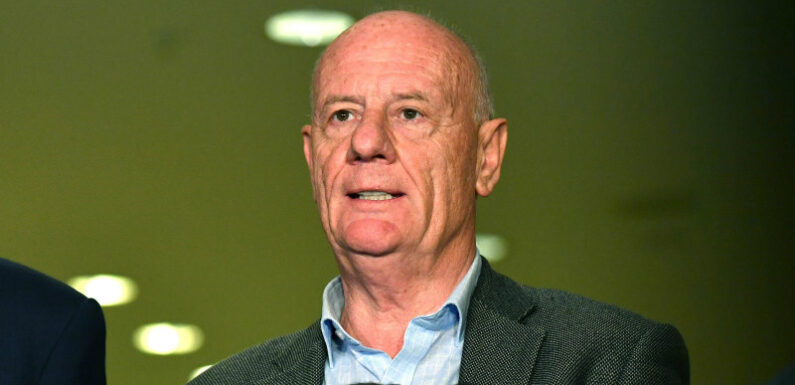
Save articles for later
Add articles to your saved list and come back to them any time.
The Minns government is being urged to scrap its “unnecessary and shambolic trial of the cashless gambling card” and take stronger action on poker machine reform after Victoria unveiled sweeping changes to minimise gambling harm and fight money laundering.
Gambling reform advocate Tim Costello said the Victorian changes put the focus on NSW Labor, which has refused to introduce changes announced by the previous Perrottet government to make all poker machines in the state cashless by December 2028.
The Victorian overhaul will leave NSW with weaker anti-money laundering and gambling harm minimisation regulations.Credit: Peter Braig
Victorian gamblers will be forced to set binding limits of daily poker machine losses, gaming venues will be made to close for at least six hours a day, and poker machines will have slower spin times under changes announced by Victorian Premier Dan Andrews on Sunday.
The surprise overhaul will leave NSW with weaker anti-money laundering and gambling harm minimisation regulations than Victoria, sparking warnings that more criminal activity could now shift north of the border.
Costello accused Premier Chris Minns of running a “protection racket” for the gambling industry.
“If Dan Andrews can escape the thrall of clubs and hotels associations on pokies, it’s time for Chris Minns to follow suit,” he said.
Tim Costello has accused the Minns government of running a “protection racket” for the gambling industry.Credit: Joe Armao
An investigation by the NSW Crime Commission into money laundering via poker machines last year found billions of dollars of annual electronic gaming machine turnover was probably “the proceeds of crime”, and it recommended the introduction of cashless gambling cards.
The vast sums of cash flowing through poker machines in pubs and clubs makes NSW the “gambling capital of Australia”, the commission said.
Instead of adopting Perrottet’s cashless gambling card scheme, the Labor government promised to conduct a 12-month trial of cashless gaming cards on 500 poker machines. The government has since announced the number in the trial may be larger.
An expert panel has been appointed to oversee the trial and determine whether cashless gambling should be rolled out more widely. However, the trial is yet to begin.
“The unnecessary and shambolic trial of the cashless gambling card in NSW should be abandoned and Premier Minns should follow the lead of Victoria in committing to the statewide implementation of a mandatory, pre-commitment cashless card,” Costello said.
“Victorians have waited a very long time for meaningful and significant reforms such as this.”
Costello warned that if NSW failed to match Victoria’s gambling reforms it could drive criminal money laundering activity into NSW from Victoria.
The Victorian reforms include mandatory venue closures for every pub and club’s gambling area from 4am to 10am. Load-up limits, the amount an individual can put into a poker machine at a time, will be capped at $100, down from the current limit of $1000. The government also plans to lower the “spin rate” on poker machines, from the current 2.1 seconds per game to three seconds, effectively slowing the pace of gaming to limit loses.
Andrews said the changes, expected to be in place by the end of the year, would give Victoria the toughest gambling and anti-money laundering measures in Australia.
“We owe it to all Victorians to take this stance and help those experiencing harm turn their lives around,” he said.
NSW was the first state to legalise poker machines in 1956, and last year it had more than 86,000 registered machines. Analysis by the Wesley Mission charity shows that was 30 per cent more machines than in Queensland and Victoria combined.
The profits made by clubs and pubs in NSW (which equates to player losses) reached $8.1 billion last year, figures released by NSW Liquor and Gaming NSW show. That compares with profits of $6.61 billion in 2019, the last year unaffected by COVID-19 disruptions.
Research shows that the biggest poker machine losses per person in Sydney have been concentrated in relatively low-income districts in the city’s south-western suburbs.
The Morning Edition newsletter is our guide to the day’s most important and interesting stories, analysis and insights. Sign up here.
Most Viewed in National
From our partners
Source: Read Full Article

